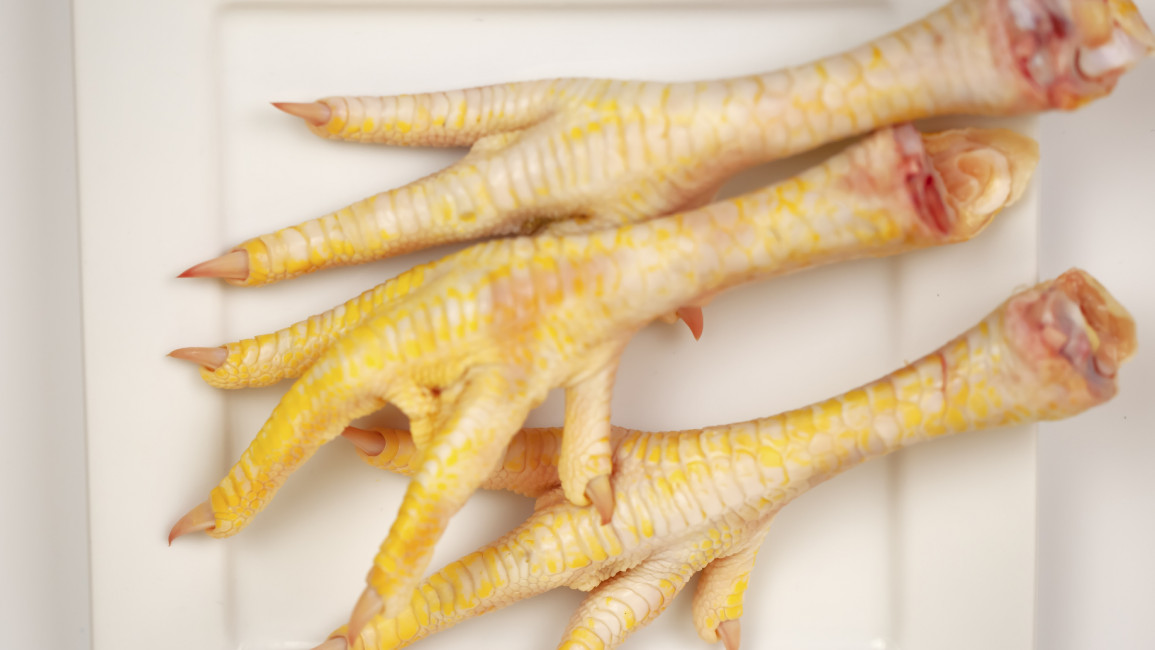Thaer Mansour
Egypt - Cairo
28 December, 2022
In 2018 novel 'utopia', there is no middle class. The class live in an isolated, gated city while the poor eat chicken feet in 2023.

In his novel "Utopia," Ahmed Khaled Tawfik predicted that the poor would eat chicken feet in 2023. [Getty]
Late Egyptian novelist Ahmed Khaled Tawfik’s 2008 bestseller 'Utopia' has resurfaced this week after some of the its dystopian predictions for 2023 appear to be materialising in real life.
In the novel, there are only two social classes: a wealthy class and an extremely poor one. The rich live an extravagant life in an isolated gated community, while the poor eat chicken feet and can barely survive. The US dollar in the novel amounts to 30 Egyptian pounds.
Little did Tawfik know that his literary prophecy would come true; that the middle class would diminish, and that the poor become poorer - and be advised to eat chicken feet.
In recent days, Egypt's National Nutrition Institute has been posting on its official Facebook page a number of meals that contain alternatives to chicken and beef.
One poulterer told The New Arab that he sells chicken feet for families that breed dogs, for three to six Egyptian pounds per kilo, depending on the quality.
“Some poor families buy the six pound kilo for it contains more skin to use for cooking broth,” he explained.
In recent months, the prices of meat, poultry and eggs have been rising to the extent that poor and middle-class families have resorted to plant protein sources such as fava beans and lentils, which have also shot up in price.
Egypt's economy has been hit hard by the coronavirus pandemic, years of government austerity measures, and fallout from the invasion of Ukraine by Russia. Egypt is the world’s largest wheat importer, and most of its imports come from Russia and Ukraine.
Earlier this month, the International Monetary Fund approved a $3 billion support package for Egypt after a series of reforms by the country's central bank began in March, including a currency floating that has seen the Egyptian pound lose 36 per cent of its value to the dollar since then.
Meanwhile, Egyptians were quick to satirise the nutrition institute’s initiative as some shared photocopies of extracts of Tawfik’s novel.
Journalist Wael Kandil cynically wrote on Twitter: “The [Egyptian] people are guilty as they were behind the crisis by getting married and having children. They also eat …meat and chicken while there are chicken feet to eat. These ungrateful people think that they own their savings at the bank. You, people, should not think this way.”
Award-winning novelist Ibrahim Abdel-Meguid could not agree more.
“One has seen a lot during another era, politics, farce, laughter, tears; but…can’t comprehend what’s going on in the country…we reached the point of [talking about] the importance of chicken feet in strengthening the [human] body, muscles, nerves…we [may] find tomorrow a press campaign [promoting] mice’ legs as well,” he sarcastically tweeted.
Meanwhile, prominent political sociologist and intellectual Ammar Ali Hassan posted parts of 'Utopia' mentioning the poor’s chicken feet meals and as the isolated city of the rich, which eerily resembles the New Administrative Capital built outside Cairo.
The project of the new city has been widely criticised for being established through loans that took a toll on the Egyptian economy.
No comments:
Post a Comment